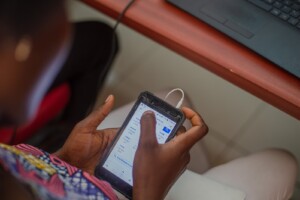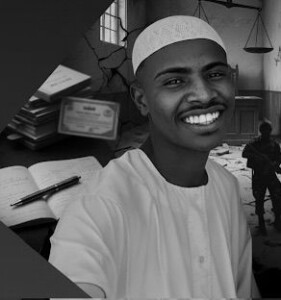‘Sudan limits online press, activists’: Freedom House
People in Sudan surfing and publishing content on the internet faced numerous violations of user rights, obstacles to access the internet and limitations on their publications by the Government of Sudan during the last year.
People in Sudan surfing and publishing content on the internet faced numerous violations of user rights, obstacles to access the internet and limitations on their publications by the Government of Sudan during the last year.
In particular journalists and social media users were restricted in their online activities, according to the new report on Sudan's 'Freedom on the Net' by the international Freedom House. Analysing all reported incidents of user rights violations and limits on content in Sudan, Freedom House ranked Sudan a 'not free' status with a score of 64 – 100 being completely not free – which is the same score as last year.
In the last year social media users were active in organising civil disobedience campaigns against cuts to subsidies on fuel, basic commodities, and medicine. But arrests and harassment for online activities continued, particularly as heavy-handed censorship on the print and broadcast sectors led journalists to migrate online to disseminate news.
Overall the percentage of people using the internet increased from 26.6 percent in 2015 to 28 percent in 2016. Freedom House saw no clear reports indicating that the government blocked internet connections during the coverage period, and no online news outlet, social media, or communications platforms were restricted this year.
However, the Sudanese government openly acknowledges blocking and filtering websites that it considers “immoral” and “blasphemous”.
Shift to online
Facing heavy censorship, many print newspapers have shifted to digital formats to circulate censored or banned material on their websites and social media pages. As a result, Sudanese people increasingly rely on online outlets and social media, including WhatsApp and blogs, to obtain uncensored information.
In response to the vibrant online information landscape, the so-called Cyber Jihadists Unit has been called into life, which falls under the National Intelligence and Security Service (NISS). The unit worked proactively to monitor content and infiltrate online discussions about the civil disobedience campaigns, against the government's austerity measures, in November and December 2016.
The Cyber Jihadists created dozens of fake social media profiles to infiltrate prominent Facebook and WhatsApp groups that organised the civil strikes, and exposed the identities of some activists to the authorities.
Authorities in Sudan increasingly requested user information from social media platforms. In its global government transparency report covering 2016, Facebook disclosed that it had received a total of five 'Requests for User Data' – which Facebook did not provide.
Press Act changes
The highly restrictive Press and Printed Press Materials Law of 2004 was updated in November 2016 to include specific clauses pertaining to online journalism, extending onerous limitations long placed on the traditional press to the online sphere.
“The government has concerns about the new media.” – Human rights observer Burag El Warrag
Last month, the Ministry of Information and Broadcasting proposed draft amendments to the 2009 Press and Publications Act which reportedly require digital newspapers to register with the Sudanese Journalism Council and subject social media to other government controls, as well as allowing a greater restriction on the freedom of press and journalists – such as banning newspapers from publication and banning journalists from writing.
As of yesterday, journalists have united in setting up a petition campaign against the draft changes. The executive director of the Sudanese Observatory for Human Rights, Burag El Nazir El Warrag, commented to Radio Dabanga yesterday that the changes to the Act threaten internet activists and authors on social media platforms.
“Khartoum is closely related to the international community and it wants to evade questions by the community about freedoms and political situations. Therefore it sought to strengthen its authority through the Press Act, even if it is not compatible with international standards,” said El Warrag.
“The government has concerns about the new media, so it worked to foster the Act with deterrent measures against online press.”











 and then
and then